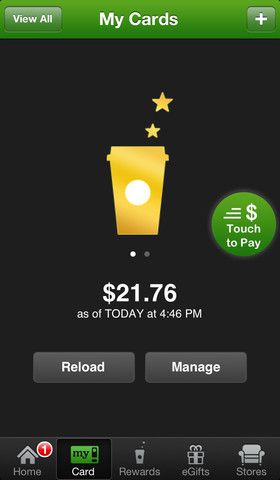(单词翻译:单击)
You can credit Apple Pay with dramatically raising the visibility of mobile payments technology over the past four months. Even the U.S. government now accepts it, for admission to national parks and such.
过去四个月里,移动支付技术获得的关注度显著提升,这笔功劳很大程度要记在苹果公司的Apple Pay上。就连美国政府现在也接受了它,允许人们用它购买国家公园的门票什么的。
Google isn’t just watching: it just signed some formidable partners to build its own share more quickly. AT&T, T-Mobile and Verizon will all preload Google’s app on certain mobile handsets. They’ve also decided to let Google take control of Softcard, the alliance they created to control their mobile payment destiny.
谷歌不仅仅是在观望:该公司刚刚和几个强大的合作伙伴签约,企图迅速构筑自己的市场份额。AT&T、T-Mobile和Verizon等运营商都将在特定机型上预装谷歌的支付应用。他们还决定让谷歌控制他们为掌控移动支付命运而创建的Softcard联盟。

Plus, you shouldn’t discount the potential influence of the world’s biggest smartphone maker, Samsung. Last week, it bought LoopPay, a technology that doesn’t require massive upgrades of point-of-sale technology.
另外,我们也不应忽视全球最大手机制造商三星公司的潜在影响力。就在上周,三星刚刚收购了LoopPay公司,后者的技术并不需要POS机技术的重大升级。
Nor should you overlook PayPal, which processedapproximately $46 billion in mobile payments during 2014. That was 20% of its total.
PayPal也不容忽视。2014年,PayPal通过移动支付处理了将近460亿美元的交易额,占其总交易额的20%。
Why all this fuss? The answer lies in the success of the Starbuck mobile app, which supports at least 7 million mobile transactions per week.
各大公司为何纷纷涌向移动支付?答案与星巴克移动应用的成功有关,该应用每周至少要处理700万次移动交易。
An impressive digital payment vehicle? Certainly. But that understates the app’s powerful influence as a marketing tool. It’s already used liberally to distribute third-party software, digital music, and promotional offers. A valuable marketing channel that is mostly underexploited today.
移动支付是一个优秀的数字支付载体吗?当然。但这种说法低估了它作为一种营销工具的强大影响力。它已经被广泛用于推广第三方软件、数字音乐和促销活动。这是一个极具价值,但目前还没有得到充分开发的营销渠道。
“Access to loyalty rewards from brands is the most wanted features from consumers, and it’s the one least integrated in mobile payments today,” notes Forrester Research analyst Thomas Husson, in a recent blog about this topic.
福雷斯特研究公司分析师托马斯o哈森最近在一篇讨论这个话题的博客中写道:“获得各大品牌的忠诚度奖励,是消费者最想要的功能,它也是这些移动支付最大的缺陷之一。”
Indeed, approximately 57% of U.S. adult smartphone users want access to loyalty programs and rewards through mobile wallets, according to his firm’s ongoing Consumer Technographics surveys.
实际上,根据福雷斯特公司正在进行的消费科技调查,大约57%的美国成年人智能手机用户想通过智能钱包参加某个品牌的忠诚度奖励计划。
Three other tidbits to consider:
另外还有三点需要注意:
o Don’t forget price comparison information. It was only slightly behind loyalty programs as a desired feature for mobile wallets.
o 不要忘了价格比较功能。在消费者看来,比价信息的重要性只是略低于忠诚度计划,也是消费者非常需要的移动钱包功能之一。
o Consumers may be slow to trust. They’re more likely to consider mobile wallets from banks and credit card processors than from technology companies or retailers. PayPal stands out as an exception.
o 要让消费者信任移动钱包可能需要比较长的时间。他们可能更容易相信银行或信用卡处理商推出的移动钱包软件,而不是科技公司或零售企业提供的移动支付功能。PayPal是个例外。
o Dramatic three-year increase anticipated. According to Forrester’s report in early February, just 3% of consumers have used a mobile wallet in the past three months. By 2018, however, adoption should reach 15-20% of smartphone users. That’s an impressive upside.
o 在未来三年内,移动钱包有望实现快速增长。根据福雷斯特公司二月初发布的报告,在过去三个月里,只有3%的消费者使用了移动钱包功能。不过到2018年,移动钱包的使用率将达到全部智能手机用户的15%到20%。这种增长速度将是非常惊人的。


